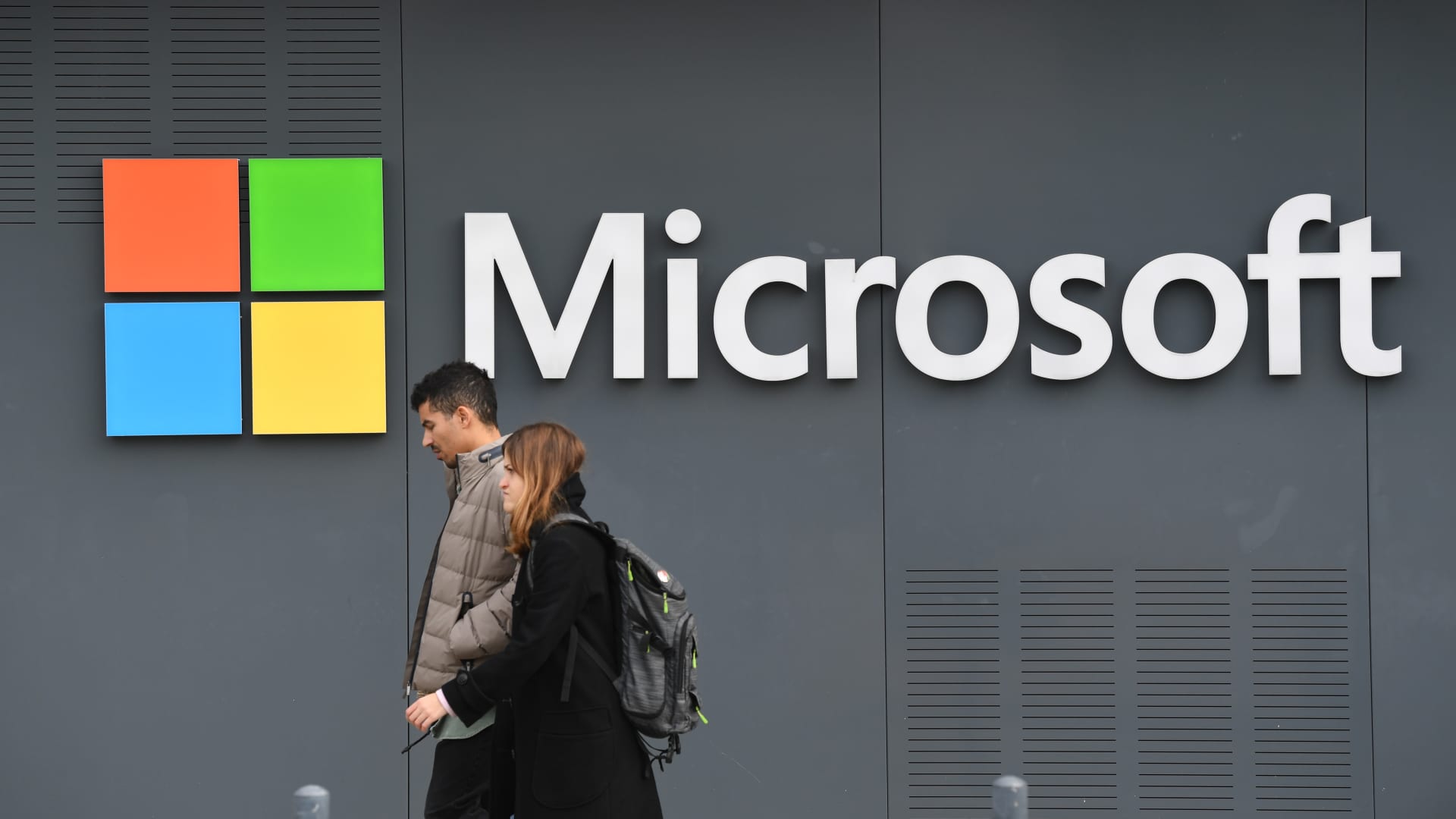
A sign for Microsoft Corp. at the company’s office in the central business district of Lisbon, Portugal, Dec. 27, 2022.
Zed Jameson | Bloomberg | Getty Images
Microsoft’s speech recognition subsidiary Nuance Communications on Tuesday announced its AI-powered clinical notes application is coming to Epic Systems to help reduce physicians’ administrative workloads.
Epic is a health care software company that helps hospitals and other health systems store, share and access electronic health records. More than 500,000 physicians and 306 million patients across the globe use Epic’s offerings, and the company has long-standing partnerships with both Microsoft and Nuance.
The companies are collaborating to build a system that can carry out many of clinicians’ backend administrative responsibilities. Nuance told CNBC Tuesday that integrating its latest solution, Dragon Ambient eXperience (DAX) Express, into Epic is a “major step” toward that goal.
DAX Express automatically generates a draft clinical note within seconds after a patient visit. It can record a conversation between a doctor and a patient in real time and create a note using a combination of existing artificial intelligence and OpenAI’s newest model, GPT-4.
“I think the magical thing here is that that note is produced not in an hour, but in a matter of seconds,” Garrett Adams, product lead for Epic’s ambulatory division, told CNBC in an interview Tuesday. “So whereas it would have taken them so much longer than that to type it out manually, they now get it better, faster and with a level of convenience that wasn’t even really possible to imagine a decade ago.”
Nuance, which Microsoft acquired for around $16 billion in 2021, sells tools for recognizing and transcribing speech during doctor office visits, customer-service calls, and voicemails. The company first announced its DAX Express solution in March, and it said in a release Tuesday that the technology is saving clinicians around 7 minutes per patient encounter.
Many doctors and nurses across the U.S. are struggling to keep up with burdensome clerical work, so this time is a valuable commodity in the healthcare industry.
A study funded by the American Medical Association in 2016 found that for every hour a physician spent with a patient, doctors spent an additional two hours on administrative tasks. The study said that physicians also tend to spend an additional one to two hours doing clerical work outside of working hours, in what many refer to as “pajama time.”
“The last thing they want to do is pajama time,” Peter Durlach, chief strategy officer at Nuance told CNBC in an interview Tuesday. Adams added that Nuance’s technology will also allow physicians to be more present while they are meeting with patients.
“The provider is able to sit and really focus on what the patient is saying, without thinking about all of the other things in the back of their mind that they need to keep track of,” he said. “The patient feels a lot more connected, a lot more listened to.”
Nuance has strict data agreements with its customers, so patient data is fully encrypted and runs in HIPAA-compliant environments.
DAX Express for Epic will be available in a private preview capacity for select users this summer, and Durlach said the company hopes to expand to general availability in the first quarter of 2024.





